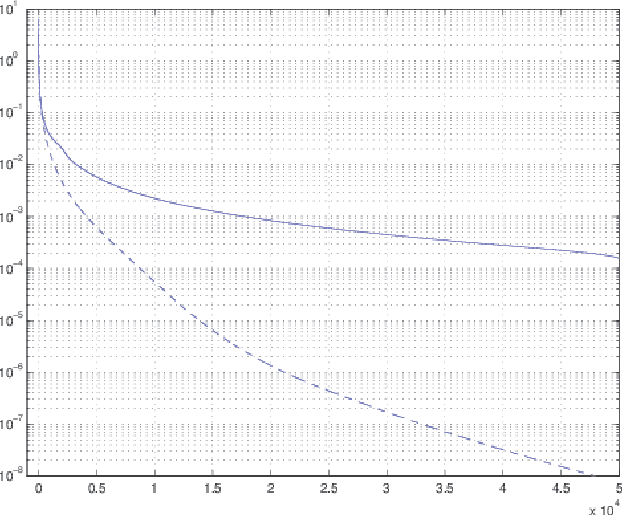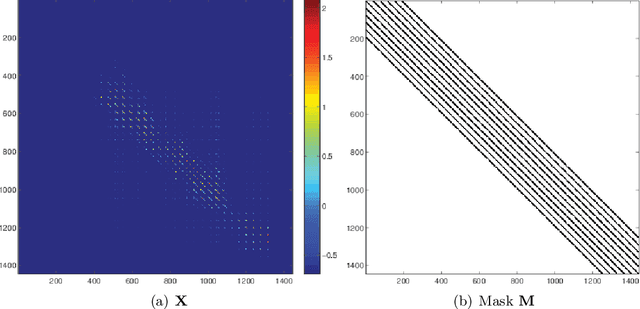Irène Waldspurger
Graph Alignment via Birkhoff Relaxation
Mar 07, 2025
Abstract:We consider the graph alignment problem, wherein the objective is to find a vertex correspondence between two graphs that maximizes the edge overlap. The graph alignment problem is an instance of the quadratic assignment problem (QAP), known to be NP-hard in the worst case even to approximately solve. In this paper, we analyze Birkhoff relaxation, a tight convex relaxation of QAP, and present theoretical guarantees on its performance when the inputs follow the Gaussian Wigner Model. More specifically, the weighted adjacency matrices are correlated Gaussian Orthogonal Ensemble with correlation $1/\sqrt{1+\sigma^2}$. Denote the optimal solutions of the QAP and Birkhoff relaxation by $\Pi^\star$ and $X^\star$ respectively. We show that $\|X^\star-\Pi^\star\|_F^2 = o(n)$ when $\sigma = o(n^{-1.25})$ and $\|X^\star-\Pi^\star\|_F^2 = \Omega(n)$ when $\sigma = \Omega(n^{-0.5})$. Thus, the optimal solution $X^\star$ transitions from a small perturbation of $\Pi^\star$ for small $\sigma$ to being well separated from $\Pi^\star$ as $\sigma$ becomes larger than $n^{-0.5}$. This result allows us to guarantee that simple rounding procedures on $X^\star$ align $1-o(1)$ fraction of vertices correctly whenever $\sigma = o(n^{-1.25})$. This condition on $\sigma$ to ensure the success of the Birkhoff relaxation is state-of-the-art.
Benign landscape for Burer-Monteiro factorizations of MaxCut-type semidefinite programs
Nov 05, 2024Abstract:We consider MaxCut-type semidefinite programs (SDP) which admit a low rank solution. To numerically leverage the low rank hypothesis, a standard algorithmic approach is the Burer-Monteiro factorization, which allows to significantly reduce the dimensionality of the problem at the cost of its convexity. We give a sharp condition on the conditioning of the Laplacian matrix associated with the SDP under which any second-order critical point of the non-convex problem is a global minimizer. By applying our theorem, we improve on recent results about the correctness of the Burer-Monteiro approach on $\mathbb{Z}_2$-synchronization problems.
Deep Learning by Scattering
Jun 25, 2015
Abstract:We introduce general scattering transforms as mathematical models of deep neural networks with l2 pooling. Scattering networks iteratively apply complex valued unitary operators, and the pooling is performed by a complex modulus. An expected scattering defines a contractive representation of a high-dimensional probability distribution, which preserves its mean-square norm. We show that unsupervised learning can be casted as an optimization of the space contraction to preserve the volume occupied by unlabeled examples, at each layer of the network. Supervised learning and classification are performed with an averaged scattering, which provides scattering estimations for multiple classes.
Wavelet methods for shape perception in electro-sensing
Oct 10, 2013



Abstract:This paper aims at presenting a new approach to the electro-sensing problem using wavelets. It provides an efficient algorithm for recognizing the shape of a target from micro-electrical impedance measurements. Stability and resolution capabilities of the proposed algorithm are quantified in numerical simulations.
 Add to Chrome
Add to Chrome Add to Firefox
Add to Firefox Add to Edge
Add to Edge